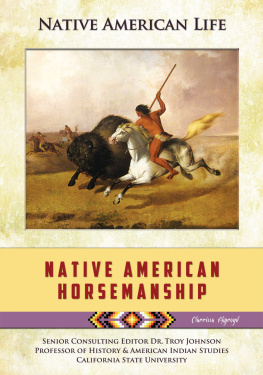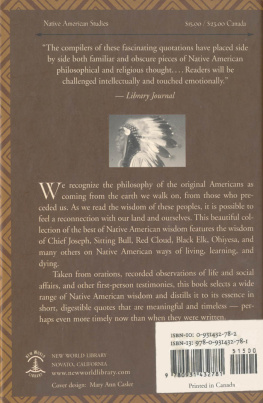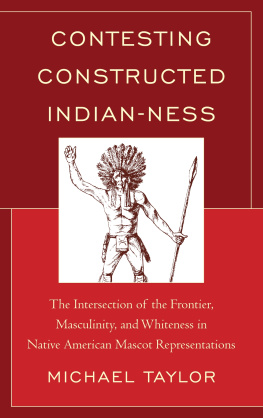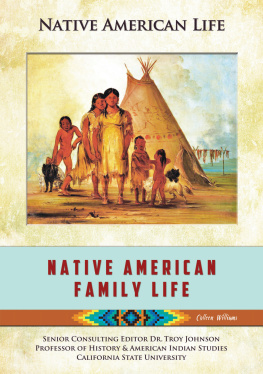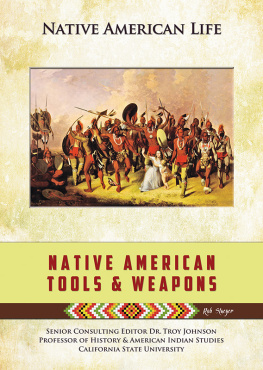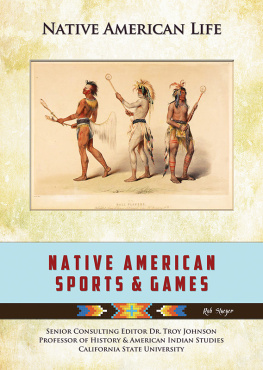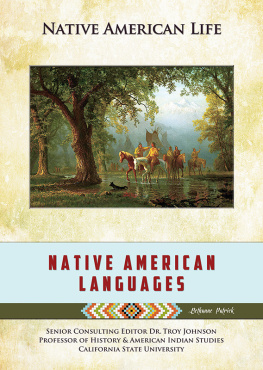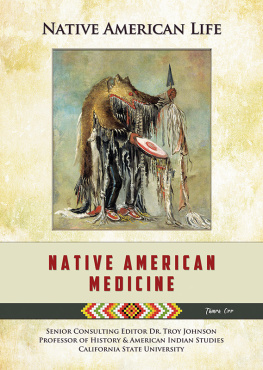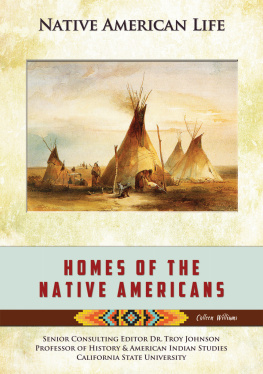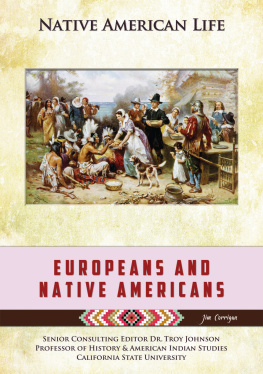Native Americans in the American Revolution
How the War Divided, Devastated, and Transformed the Early American Indian World
Ethan A. Schmidt

Copyright 2014 Ethan A. Schmidt
All rights reserved. No part of this publication may be reproduced, stored in a retrieval system, or transmitted, in any form or by any means, electronic, mechanical, photocopying, recording, or otherwise, except for the inclusion of brief quotations in a review, without prior permission in writing from the publisher.
Library of Congress Cataloging-in-Publication Data
Schmidt, Ethan A.
Native Americans in the American Revolution : how the war divided, devastated, and transformed the early American Indian world / Ethan A. Schmidt.
pages cm.
Includes bibliographical references and index.
ISBN 978-0-313-35931-6 (alk. paper) ISBN 978-0-313-35932-3 (ebook)
1. United StatesHistoryRevolution, 17751783Participation, Indian. 2. Indians of North AmericaHistoryRevolution, 17751783. 3. Indians of North AmericaGovernment relations. 4. United StatesRelationsGreat Britain. 5. Great BritainRelationsUnited States. 6. BritishNorth AmericaHistory18th century. 7. Indians of North AmericaWars17751783. I. Title.
E230.S436 2014
973.3'43dc23
2014013335
ISBN: 978-0-313-35931-6
EISBN: 978-0-313-35932-3
18 17 16 15 14 1 2 3 4 5
This book is also available on the World Wide Web as an e-book.
Visit www.abc-clio.com for details.
Praeger
An Imprint of ABC-CLIO, LLC
ABC-CLIO, LLC
130 Cremona Drive, P.O. Box 1911
Santa Barbara, California 93116-1911
This book is printed on acid-free paper 
Manufactured in the United States of America
NATIVE AMERICANS IN THE AMERICAN REVOLUTION
NATIVE AMERICANS IN THE AMERICAN REVOLUTION
HOW THE WAR DIVIDED, DEVASTATED, AND TRANSFORMED THE EARLY AMERICAN INDIAN WORLD
Ethan A. Schmidt
PRAEGER
AN IMPRINT OF ABC-CLIO, LLC
Santa Barbara, California Denver, Colorado Oxford, England
This book is dedicated to my parents, Tom and Susie Schmidt.
How lucky I am to be their son.
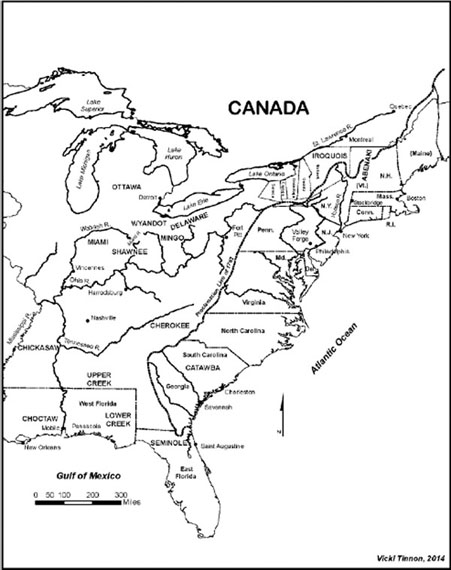
Colonial America on the Eve of the American Revolution
CONTENTS
ACKNOWLEDGMENTS
So many people beyond me have contributed to this work; I hope the finished product does them credit. My former department chair at Texas Tech University (TTU), Dr. Randy McBee, was generous from the very outset in granting travel funds and time off in order to conduct the research and to write the early chapters. Funds granted me by the office of the vice president for research at TTU also aided in the completion of this project.
The staffs of the Library of Congress, the Missouri Historical Societys Library and Research Center, the Clements Library at the University of Michigan, the Rockefeller Library at Colonial Williamsburg, the British National Archives and Public Record Office, the British Library, the Texas Tech University Library, and the Roberts-LaForge Library at Delta State University provided invaluable assistance to me during the research and writing of this project. I cannot thank them enough for their professionalism and patience. Jack Becker of the Texas Tech University Library was particularly helpful and supportive of this volume and I owe him a great debt.
Many colleagues and associates near and far have been valuable as sounding boards for my ideas regarding this project or simply as providers of emotional and intellectual support. These individuals include my former adviser at the University of Kansas Paul Kelton, Ronald McCoy, Robbie Ethridge, Donald Fixico, Nicole Anslover, Brady DeSanti, Dixie Haggard, Miguel Levario, Karlos Hill, Paul Bjerk, Zachary Brittsan, Emily Skidmore, Sean Cunningham, Manu Vimalassery, Saad Abi-Hamad, Jeff Mosher, and Jobi Martinez. I would also like to extend a particular thank you to Bruce Johansen of the University of Nebraska-Omaha for his insightful comments on a draft of the project. His thoughts were most helpful to me as I prepared the final manuscript. My colleagues at Delta State University were a tremendous support to both myself and my family as we transitioned from Lubbock to Cleveland and as I worked to finish this book. I am so lucky to have such wonderful people to share my academic life with such as Chuck Westmoreland, Brian Becker, Thomas Laub, Gavin Lee, Lynn Pazzani, James Robinson, Thomas Boschert, Jerry Dallas, Michelle Johansen, Shannon Lamb, Paulette Meikle, Debarashmi Mitra, Leslie Green-Pimentel, Leslie Fadiga-Stewart, David Hebert, Don Allan Mitchell, Mike Smith, Paul Hankins, and Vicky Hartley. Thanks to you all for your support and friendship. My colleague Vicki Tinnon deserves special mention for the excellent map she contributed to this volume. Telling this story would have been infinitely more difficult without it.
I cannot say enough about the people at ABC-CLIO with whom I have worked to bring this project to fruition. Elizabeth Demers took a chance on an unpublished, first-year assistant professor and acquired this project for ABC-CLIO based solely on a proposal and one face-to-face meeting at the Western History Association Conference in 2003. Though she left to pursue other opportunities before the project really got going, I will never forget her faith in me and the idea of this book. James Sherman picked up where she left off and was forced to deal with an extremely lengthy delay as a project I was committed to before this one encountered several setbacks. He stuck by me and the project and it is largely due to his decision not to pull the plug (which would have been entirely understandable) that this volume exists today. It has been a true joy to work closely with Michael Millman during most of the writing of the last half of the book and the entire revision and publication process. His patience, professionalism, and most of all belief in the book, as well as his singular talent for prodding without seeming too pushy or unreasonable were exactly what I needed to bring this project across the finish line. He handled the delays occasioned by my decision to leave Texas Tech and take up my current position at Delta State University with tremendous patience. Words cannot express the full measure of my gratitude to him, but they are all I have, so thank you Michael!
I also owe a debt of gratitude to two scholars whom I have never met, but without whose work this volume would not have been possible. Gary Nashs entire career and most recently his book The Unknown American Revolution have been an inspiration to me both in my teaching of the American Revolution as a many-sided struggle to reinvent America and to this project. I first bought Colin Calloways The American Revolution in Indian Country as a freshman at Emporia State. Little did I know back then that Calloways work in that book and his many others would become so important to my life and career. I hope that this book does some small part to answer the call he sounded in 1995 for a synthesis of the Indian experience in the American Revolution. While he would have done a much better job of it than I, hopefully my work will be sufficient for now.
My wife, Elizabeth, and our three children, Connor, Dylan, and Brianna, put up with so much more than they should have in order to allow me to research and teach my passion. They have borne it all with such grace and forbearance. I do not deserve them. Nonetheless I cherish them. Elizabeth, ever since I met you at a fraternity party on the campus of Emporia State University nearly 20 years ago you have enriched my life and inspired me to do my utmost to be as good a husband and father as I can. It has been a long journey to this point for us full of twists, turns, and surprises, but through it all nothing was insurmountable because you were with me, by my side, always encouraging me. Thank you! I love you! As for Connor, Dylan, and Brianna, you three came along and made what was already a great marriage and life even better! I love you all more than you know and now that this project as well as others have come to fruition, there will be even more time for trips, walks, ball games, stories, card games, Legos, video games, swimming, movies, snuggles, and hugs than before. I cant wait!


